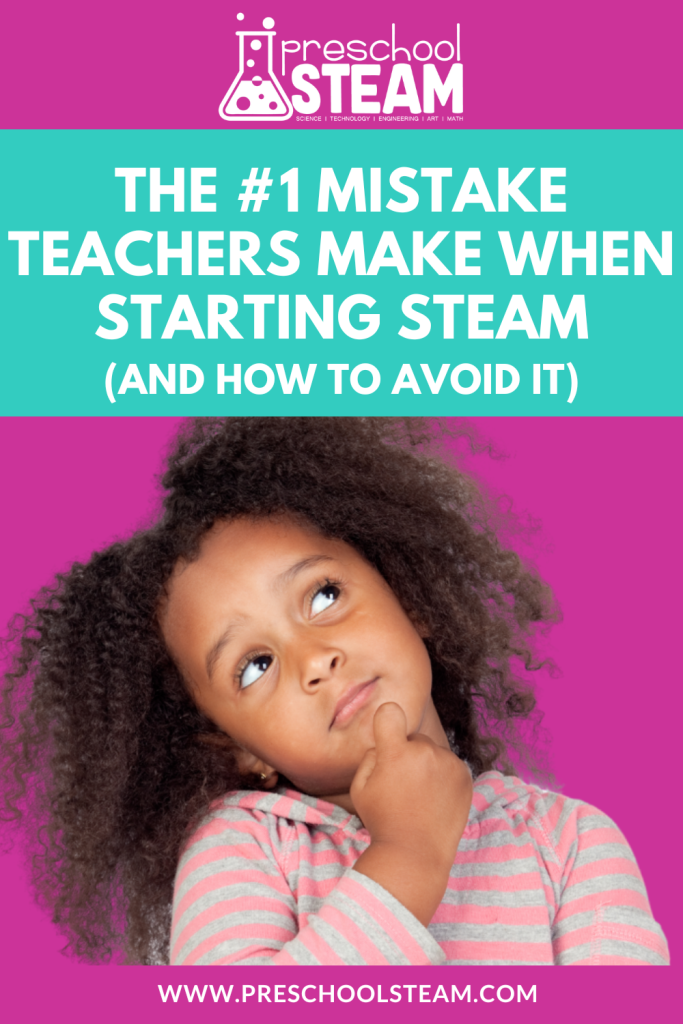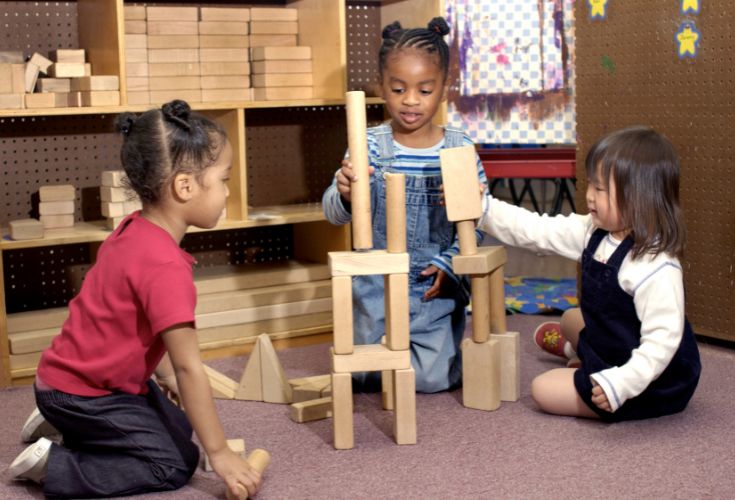If you’re new to STEAM—or trying to do it “right”—you might find yourself overplanning.
You gather the materials.
You prep the activity.
You set the expectations.
But then… the kids do something totally different.That’s not failure.
That’s real STEAM in action.

And it brings us to the biggest mistake many teachers make when starting out:
❌ Mistake: Trying to Control the Outcome
When we treat STEAM like a scripted lesson, we miss the magic.
We unintentionally send the message that there’s a “right” way to explore.
But the truth is:
STEAM is about wondering, testing, and adjusting.
It’s not about getting it “right”—it’s about learning how to think.
The Shift: From Control → Curiosity
What if, instead of directing every step, you let kids lead the way?
Here’s what that looks like:
- Instead of giving directions, you ask questions.
- Instead of pre-determined outcomes, you offer open-ended materials.
- Instead of rushing to the next activity, you pause to observe what’s unfolding.
This is how real STEAM happens—through play, experimentation, and discovery.
The 3-Step Framework That Keeps It Simple
At Preschool STEAM, we use a simple 3-step method to help teachers embrace curiosity without chaos:
1. Invite Play
Set out open-ended materials to spark curiosity. (We call these M.O.W. = Moments of Wonder.)
2. Observe Wonder
Watch what children are drawn to. Ask questions like,
“What do you notice?”
“What else could we try?”
3. Extend STEAM
Add STEAM tools or materials. Encourage comparison, measurement, building, and documenting.
This approach makes STEAM feel doable—even if you’re just starting out.
Real-Life Example: Nature Ramps
Let’s say you offer kids cardboard pieces and rocks outside. They start building ramps on their own.
Instead of taking over, you ask:
- “What happens when the rock rolls down?”
- “Does it go faster or slower on the grass?”
- “How could we make it go farther?”
Now they’re testing, redesigning, and collaborating.
You didn’t need a full-blown lesson plan—just an invitation to explore.
What to Do Instead of Overplanning
| Instead of… | Try… |
| Prepping a step-by-step craft | Offering materials and asking, “What could you make with this?” |
| Focusing on product | Focusing on the process |
| Sticking to the plan | Following their curiosity |
💬 Remember This:
You don’t have to control the outcome for learning to be meaningful.
In fact, letting go of control often leads to deeper, more joyful learning—for both you and your students.
🔗 Want Support All Year Long?
The Preschool STEAM Membership helps you:
✅ Start with simple play invitations
✅ Observe what sparks curiosity
✅ Extend learning through meaningful, standards-aligned STEAM
You’ll get:
- Monthly play-based guides
- STEAM extension ideas
- Planning + reflection tools
- Access to our full Lesson Library

Leave a Reply